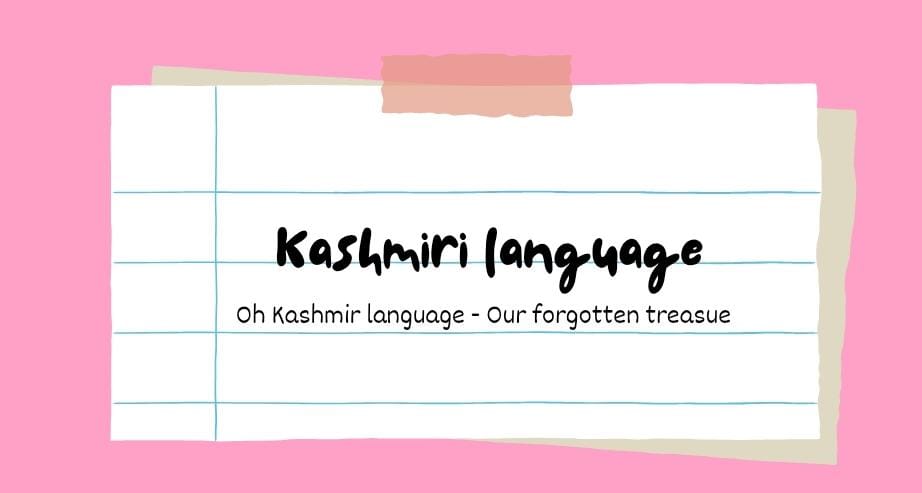
By: Ufaiz
There are languages that survive in textbooks, and then there are languages that live in people’s hearts. The Kashmiri language—our mother tongue—once lived proudly in every home, every street, and every heart in the valley. But today, it stands like a lonely chinar tree in the middle of a fast-changing storm—deeply rooted, yet slowly being forgotten…..
A Language That Raised Generations
Kashmiri is not just a language; it is a living memory of our ancestors. It is the voice of Lal Ded’s mysticism, Habba Khatoon’s love, and Mahjoor’s poetry. It is the language of our grandparents’ stories, our folk songs, our blessings, and our grief.
In Kashmiri, a simple greeting like “Haz chu chon khaer” (May you be well) carries more warmth than any “Hello.”
A mother’s whisper of “Me chukh pyomut” (You are my beloved) carries more affection than any translation ever could
Why Are We Turning Away?
Despite this beauty, today’s youth often feel hesitant to speak Kashmiri. It is seen as “old-fashioned” or “unnecessary.” English and Urdu have taken center stage, while our own language is pushed into the background—even in our own homes.
The lack of serious teaching in schools, limited presence in media, and social hesitation have all contributed to this slow disappearance. A language doesn’t vanish overnight—it fades when it is no longer spoken, written, or passed on.
Our Identity, Our Responsibility
The Kashmiri language is our cultural DNA. Losing it would mean losing a vital piece of who we are. If we don’t act now, the coming generations may never understand the songs of our soil or the poetry of our pain.
But all is not lost.
Let us speak Kashmiri at home—even if only a few words a day.
Let us read and write in it—poems, stories, even social media posts.
Let us demand respect for it in our education system and media.
Even one sentence of Kashmiri a day is a step toward saving our soul.
A Language Worth Saving
Kashmiri is not just a way of talking. It is a way of feeling, loving, and belonging. When we speak it, we don’t just speak a language—we carry history, culture, and emotion in every word.
Yi zabaan chu saet, yi chu maharaz
Yi chu panun waris, yi chu panun aabro
(This language is light, this language is beloved.
It is our heritage, it is our honour.








